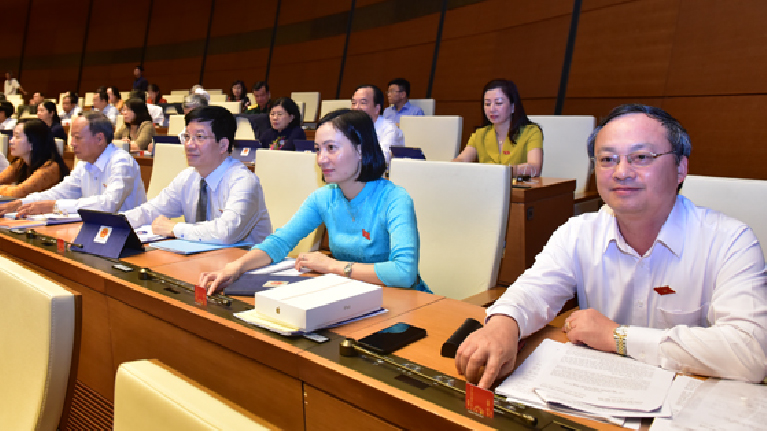International Labour Standards
ILO welcomes milestone to end forced labour in Viet Nam
The National Assembly has voted for the ratification of ILO Convention 105 on Abolition of Forced Labour and approval of the free trade agreement between the EU and Viet Nam.

Viet Nam’s National Assembly voted overwhelmingly for ratifying Convention 105 on 8 June 2020 in Hanoi. Once it has deposited the required instrument, the country will officially have ratified the convention. This fundamental labour standard which will come into force after one year.
Convention 105 compliments Convention 29 on Forced Labour, another core convention which Viet Nam already ratified in 2007.
Through this ratification, Viet Nam is demonstrating its firm commitment to combating forced labour in all its forms."
Corrine Vargha, ILO Director of International Labour Standards Department
Forced labour can be understood as work that is performed involuntarily and under the menace of any penalty. It refers to situations in which persons are coerced to work through the use of violence or intimidation, or by more subtle means such as manipulated debt, retention of identity papers or threats of denunciation to immigration authorities.
Forced labour degrades human dignity and denies the worker the ability to pursue material well-being and spiritual development based on free will.
In most of the countries around the world today, the import of products made by forced labour are prohibited by laws. One type of forced labour – forced prison labour – is the only condition on the basis of which all the World Trade Organzation member States are expressly authorized to ban the import of goods produced using it. People of developed countries have adopted a habit of boycotting products related to forced labour. Therefore the prevention and combating the use of forced labour in enterprises helps enterprises avoid the risks of their products being rejected or boycotted by importing countries. The non-use of forced labour in the goods production or services is also considered as the “laissez-passer” for the goods and services to get access to global markets.
According to ILO global estimates, there are 24.9 million victims of forced labour throughout the world. Among them, 16 million people are exploited in the private sector such as domestic work, construction or agriculture; 4.8 million persons in forced sexual exploitation, and 4 million persons in forced labour imposed by state authorities. In the private sector, forced labour generates US$150 billion in illegal profits every year.
“The Government and social partners have been making consistent efforts in bettering its legal framework to pave the way for Viet Nam to move towards an upper-middle income country in sustainable manner,” said ILO Viet Nam Director, Chang-Hee Lee.
The ILO has eight core conventions, covering four key areas namely freedom of association and collective bargaining, forced labour, discrimination, and child labour.
The new generation of free trade agreements, including the one between the EU and Viet Nam (EVFTA), requires member countries to make continued and sustained efforts towards ratifying all of these fundamental conventions to ensure that it contributes to the protection of workers’ rights and fairer share of economic gains from free trade.
The ILO also welcomes the National Assembly’s vote this morning for the approval of EVFTA.